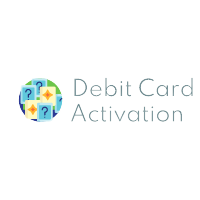In the realm of personal finance, debit cards play a pivotal role, providing a convenient and accessible means of conducting transactions. However, effective debit card management is crucial to navigate potential pitfalls and optimize the benefits associated with this financial tool. This comprehensive guide explores key strategies and practices to empower individuals in mastering debit card management.

Understanding Debit Card Dynamics
The Essence of Debit Cards
Debit cards serve as a direct link to your bank account, enabling you to make purchases, withdraw cash, and conduct various financial transactions seamlessly. Unlike credit cards, debit cards use funds directly from your checking account.
Real-Time Transaction Tracking
One of the notable features of debit cards is the immediacy with which transactions impact your account balance. Real-time tracking allows for better financial visibility, helping you stay aware of your spending habits.
Effective Debit Card Management Strategies
1. Regular Account Monitoring
Frequent monitoring of your bank account is a fundamental practice in debit card management. Regularly reviewing your account statements—either through online banking portals or mobile apps—enables you to promptly identify any unauthorized or unusual transactions.
2. Budgeting and Spending Limits
Incorporate your debit card transactions into a comprehensive budgeting strategy. Set spending limits for different categories, allowing you to allocate funds wisely and avoid overspending.
3. Security Measures
Prioritize the security of your debit card. Avoid sharing sensitive information, such as your PIN, and report lost or stolen cards immediately to mitigate potential risks. Utilize secure online platforms for transactions and be cautious with email communications requesting financial details.
4. Emergency Fund Considerations
While debit cards provide direct access to your funds, it’s essential to have an emergency fund in a separate savings account. This additional financial cushion ensures you’re prepared for unexpected expenses without jeopardizing your day-to-day budget.
5. Opt-In for Transaction Alerts
Leverage transaction alerts offered by your bank. These alerts can notify you of various activities, including purchases exceeding a specified amount, low account balances, or suspicious transactions. Real-time notifications empower you to stay on top of your financial transactions.
6. Overdraft Protection Options
Explore overdraft protection options provided by your bank. Understanding the terms and fees associated with overdrafts can help you make informed decisions about whether to opt-in or opt-out of these services.
7. Contactless Payment Awareness
With the rise of contactless payment options, be aware of the security features associated with this technology. Familiarize yourself with the security measures in place, such as tokenization, to ensure a secure contactless payment experience.
Advanced Debit Card Features
1. Customizable Alerts
Some banks offer customizable alerts that allow you to set specific parameters for notifications. Tailoring alerts to your preferences enhances your ability to monitor and manage your debit card effectively.
2. Virtual Debit Cards
Explore the option of virtual debit cards for online transactions. Virtual cards provide an additional layer of security by generating unique card numbers for each online purchase, reducing the risk of fraud.
3. Cashback and Rewards Programs
Many debit cards now come with cashback and rewards programs. Familiarize yourself with the terms of these programs, as they can provide additional value for your everyday transactions.
Addressing Debit Card Challenges
1. Unauthorized Transactions
If you discover unauthorized transactions on your debit card, promptly report them to your bank. Most banks have protocols in place for investigating and resolving such issues, and timely reporting is crucial.
2. Lost or Stolen Cards
Report lost or stolen debit cards immediately to your bank. Most financial institutions offer 24/7 customer service for such emergencies. Quick reporting helps prevent unauthorized access to your funds.
Educational Resources for Debit Card Holders
1. Bank Educational Materials
Banks often provide educational materials to help customers understand debit card features and best practices. Explore resources such as guides, FAQs, and videos offered by your bank.
2. Financial Literacy Programs
Participate in financial literacy programs or workshops that specifically address debit card management. These programs can provide valuable insights into responsible card usage and effective financial planning.
Future Trends in Debit Card Management
1. Enhanced Biometric Security
The future of debit card security may involve enhanced biometric measures, such as fingerprint or facial recognition, adding an extra layer of authentication for transactions.
2. Integration with Financial Apps
Debit card management is likely to integrate more seamlessly with financial apps, offering real-time insights into spending patterns, budgeting tools, and personalized financial advice.
Conclusion: Empowering Your Financial Journey
Mastering debit card management is an essential aspect of maintaining financial health and security. By adopting proactive strategies, staying informed about advanced features, and addressing challenges promptly, individuals can harness the full potential of their debit cards while minimizing risks. As the financial landscape continues to evolve, a well-managed debit card becomes a powerful tool in achieving financial goals and navigating the complexities of modern banking.

